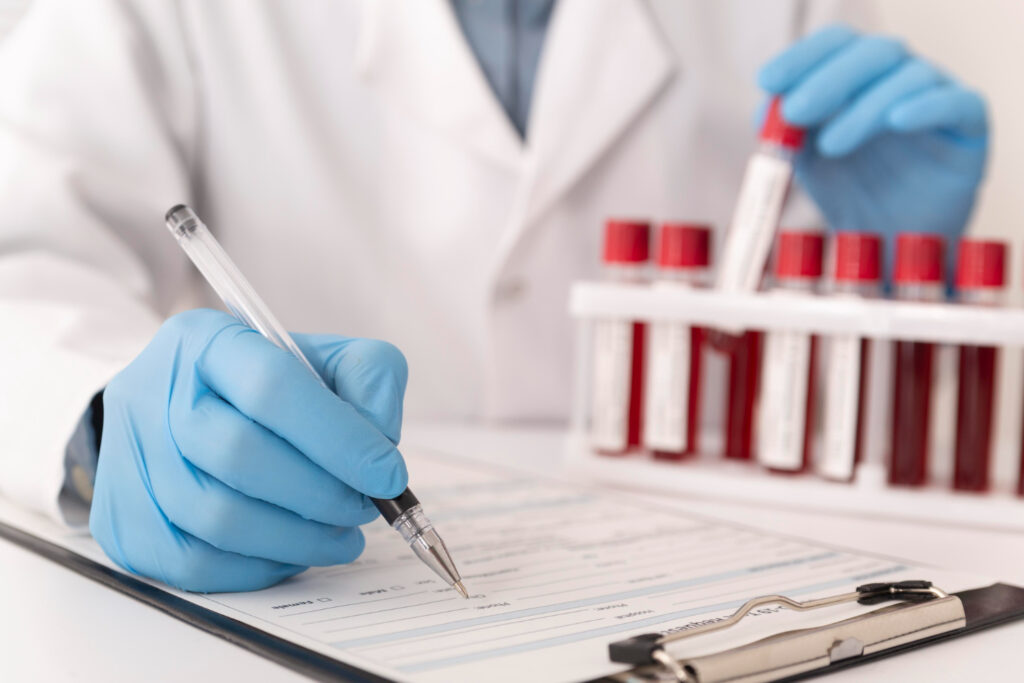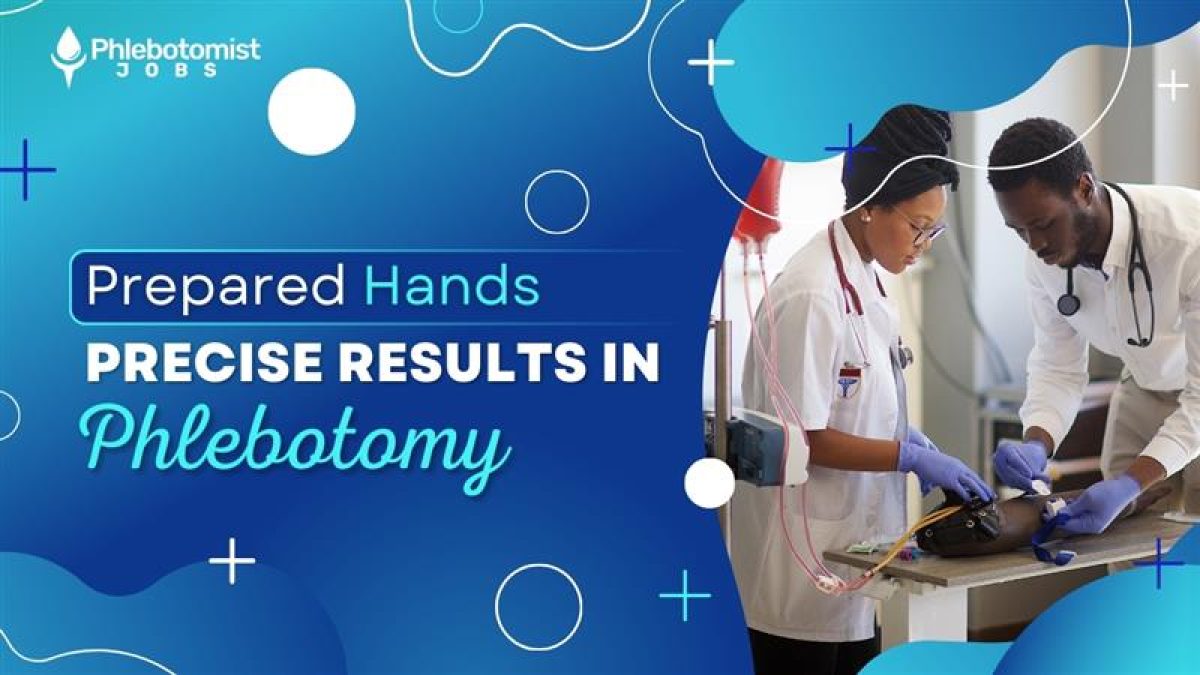Table of contents ▸
The once-budding healthcare industry in Florida has now matured into a lucrative phlebotomy market for passionate medical hopefuls. These professionals collect blood samples for patients undergoing experiments, donations, or research, thus playing a very key role in patient care. Most aspiring professionals frequently grapple with the question if Florida Phlebotomy Certification requirements demand that one be certified in keeping with their profession. This blog looks into the certification policy, training requirements, opportunities, and clear-cut approach to finding employment under Phlebotomy Jobs in Florida for anyone seeking to become a Professional Phlebotomist.
Understanding Phlebotomy Certification in Florida

Is Certification Mandatory in Florida?
Certification is not required for phlebotomists in Florida, unlike in some states, such as California and Louisiana. The Florida Department of Health processes licensing, through its Division of Licensing and Regulation, yet does not require licensure for phlebotomists. On the other hand, though state certification is not mandatory, it is highly recommended to seek a national certification that is preferred by employers. Many health care facilities, including hospitals, clinics, and laboratories, tend to employ certified phlebotomists as a way to guarantee that they are competent and working according to industry standards. National certifications, like those provided by the National Healthcareer Association (NHA) or the American Society for Clinical Pathology (ASCP), give evidence of certification, validating your skills and knowledge, and thereby opening many doors for opportunities during Phlebotomy Certification.
Why Get Certified?
It is not an absolute requirement to become certified, but certification does, however, offer tremendous benefits for Phlebotomy Jobs in Florida. Phlebotomy Certification, having passed through the gauntlet of certification, remains on top of the competitive market, for employers consider them to have proven expertise in venipuncture, patient care, and safety. Certified Professional Phlebotomists who are engaged in the field are paid more and have access to specialized jobs such as blood donation centers. The Bureau of Labor Statistics (BLS) projects an 8% average growth in Phlebotomy Jobs by 2033, fueled by health demands arising from Florida’s increasingly aging population, which thus makes for a strong certification reason.
Florida Phlebotomy Certification Requirements and Training

Educational and Training Prerequisites
To evolve into a phlebotomist within the state, a person must be in tune with the peculiar requirements Florida requires for the phlebotomist. The most initial and fundamental requirement is a high school diploma or a GED because most programs require one to have completed high school for entry into the Phlebotomy Certification training. Community colleges, vocational schools, and specialized institutions such as Southern Technical Institute or Florida Health Care Academy offer training programs that normally run between 2 to 6 weeks and offer both classroom and hands-on clinical experience. Training encompasses these basic skills:
- Venipuncture and Skin Puncture Techniques: Safe and efficient blood drawing is an art to be mastered.
- Anatomy and Vein Selection: Knowing the human body for appropriate vein selection.
- Biohazard Handling and Infection Control: Keeping the environment sterile against contamination.
- Patient Communication and Compassionate Care: Earning patient trust to lessen their nervousness during the procedure.
In most programs, a student must demonstrate competency by performing approximately 50 mean venipunctures and 10 skin punctures under supervision. The Florida Gateway College, for example, offers 165-hour programs with clinical work to ensure graduates can get a job right away. Usually, these programs can cost anywhere between $500 and $1,500, which does not include books, supplies, and certification exam fees.
Certification Process and Renewal
The individual must have completed an accredited program and successfully passed a national exam to be considered a certified Phlebotomy Certification specialist. Examining candidates on their knowledge of medical terminology, anatomy, and blood drawing techniques, exams include the NHA Certified Phlebotomy Technician (CPT) exam and the ASCP Phlebotomy Certification Technician exam. The NHA CPT exam is composed of 100 questions, which a candidate has two hours to answer.
Certification needs renewal every two years, including fulfilling continuing education credits (CECs) and paying fees. Continuing education ensures Professional Phlebotomists are continually brought up to date on techniques and technologies. Institutions, such as CompuMed Vocational Careers, prep students for these tests nicely, which enhances passing rates.
Additional Requirements
Some training programs and employers impose their own specifications, usually related to such things as: being at least 18, background check, and drug screening. For instance, Indian River State College requires that applicants score minimums on the TABE and submit SAT or ACT scores; meanwhile, Florida Gateway College requires that persons obtain a Level II background check and conduct drug screening in accord with clinical agency requirements.
Career Opportunities for Phlebotomists in Florida
Where Can Phlebotomists Work?
This land is blessed with plenty of Phlebotomy Jobs in all sorts and sizes of establishments, and therefore, it is an attractive state to pursue Phlebotomy Jobs. Usual places of work include:
- Hospitals: Fast-paced environments in which phlebotomists work on various patient needs.
- Clinics: Controlled environments where blood draws are routine.
- Diagnostic Laboratories: Emphasis on processing samples.
- Blood Donation Centers: Specialized in donor care and large-scale, profitable collection of blood.
Cities such as Miami, Orlando, Tampa, and Jacksonville are hotspots for Phlebotomy Jobs, with roughly 19,600 jobs opening up every year through 2033. Due to an aging population and no state income tax, the state is an ideal place to be a phlebotomist: This guarantees job stability and also has financial gains.
Salary and Growth
The BLS considers a wannabe phlebotomist to have in Florida, and roughly a $39,680 yearly salary or $19.08 hourly. The salary, however, is stronger depending on some of these factors: experience, location, and specialization, with top earning those having specialties such as pediatric or Geriatric Phlebotomy Certification who can go close to $50 thousand annually. Over the next decade, the demand for phlebotomists will increase by 23% due to improvements in healthcare technology coupled with the increased need for diagnostic testing.
Career Advancement
Phlebotomy may be an entryway into other health professions. Many Professional Phlebotomists use their experience to supplement their entry into medical assisting, laboratory technology, and nursing. Management positions and/or specialized roles, such as pediatric or donor centers, also provide options for higher salaries and further skills.
Conclusion
While in Florida, Phlebotomy Jobs do not require a state license; however, the national certification would be a wise choice for anyone seeking to advance in this line of work. Meeting Florida Phlebotomy Certification requirements by completing an accredited training program provides one with the knowledge and qualifications necessary to pursue rewarding career opportunities in phlebotomy. Due to the increased demand for skilled phlebotomists in hospitals, clinics, and laboratories throughout the state, this would be a great time to transition into this exciting career. Having proper education, certification, and ongoing learning to build a rewarding career in patient care and in life-saving medical processes.
Follow us on Social Media: LinkedIn | Facebook | Twitter | Instagram












